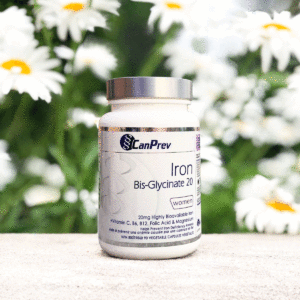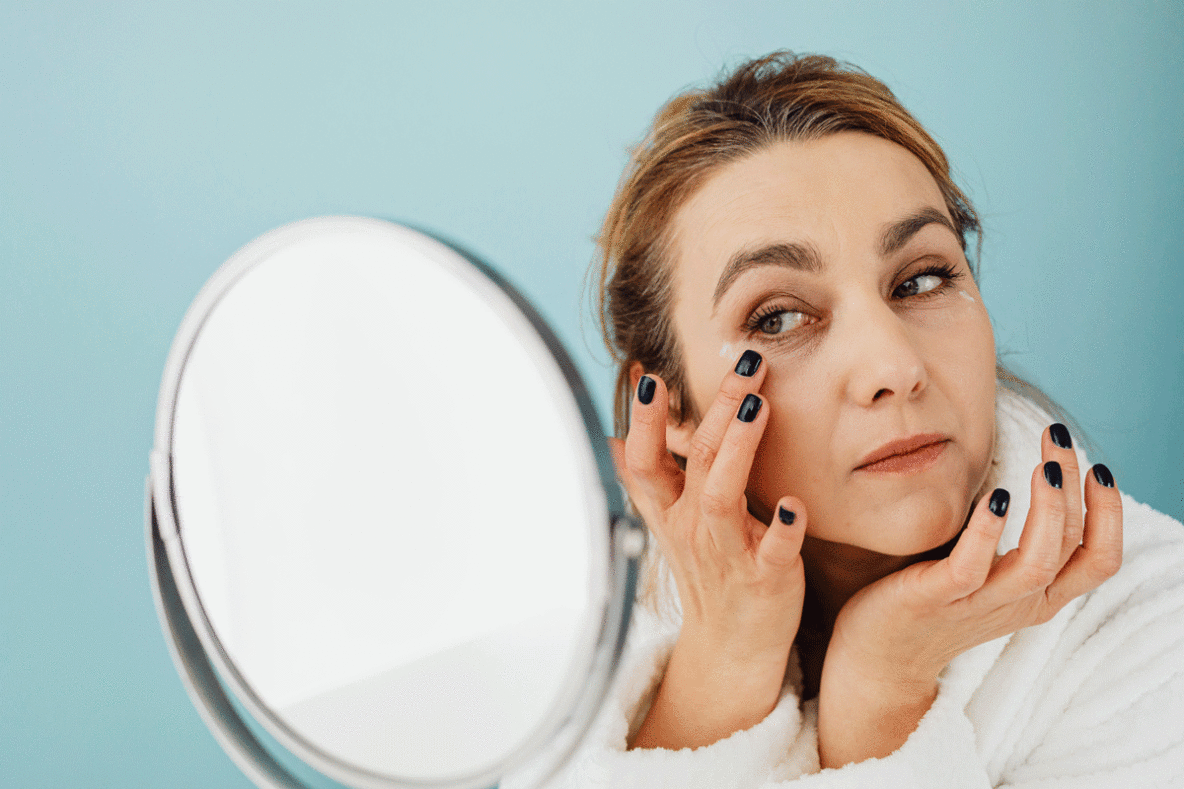When you look at yourself in the mirror, what do you see? If you’re dealing with dark circles under your eyes, you’re not alone. In fact, it’s very common to experience this at some point in your life. While it can sometimes be caused by a lack of sleep, there are other reasons as well. From allergies to nutrient deficiencies, dark circles under the eyes can tell us a lot about our overall wellbeing.
Let’s get into some common causes of dark circles and what they can tell you about your health.
What causes dark circles?
There are a number of possible reasons for dark circles. Here are some of the most common causes.
Sleep habits
If you’ve ever had a late night, you may have noticed that your eyes look a little baggy or puffy the next morning.
Not getting enough sleep causes the skin to become paler because it reduces blood flow to the skin. Our skin cells tend to function differently at night than during the day. During the day, they’re working hard to protect the skin from external threats like pollution or UV radiation. But at night, they spend a lot of time repairing and regenerating themselves. While you sleep, blood circulation and the production of collagen both speed up. Naturally, a lack of good quality sleep gets in the way of this process, ultimately reducing blood flow and causing pale skin.
Paler skin reveals the dark tissues and blood vessels beneath the skin, which causes dark circles to appear. Lack of sleep can also cause a build-up of fluid beneath your eyes, making them look puffy. Puffy eyes can accentuate your dark circles because of the shadows they create.
Kidney health
Kidneys play a major role in our detoxification process. Traditional Chinese Medicine (TCM) links the area under your eyes to kidney function. In TCM, dark circles under the eyes indicate that your kidneys are not functioning optimally. While more research is needed in this area, dark circles and eye bags can mean that your body is holding onto unwanted waste products and toxins – processes that the kidneys are heavily involved in.
Dehydration
When we’re dehydrated, our skin lacks sufficient water. Without enough water, your skin will lack elasticity, can look dry, feel itchy, and appear dull overall. Additionally, your tone and complexion may look uneven, with fine lines being more visible. A simple pinch test can help you determine if your skin is dehydrated. Take a small portion of your skin around your cheek area and squeeze lightly. If your skin doesn’t bounce back after you let go and you notice wrinkling, your skin may need more hydration.
Compared to other parts of the body, the skin under the eyes is a very thin layer. When we’re dehydrated, this skin begins to look dull, tired, and even sunken. This happens because of how close our eyes are to our cheekbones. This sunken appearance makes dark circles more prominent as a result.
Anemia
Anemia is a condition where the production of red blood cells is reduced because of low iron levels. Being anemic or iron deficient causes your skin to become paler than your actual skin tone. With the lower production of red blood cells, not enough reach the surface of your skin, resulting in a pale complexion. Similar to what happens after a sleepless night, anemia can cause the tissues and blood vessels under the skin to become more obvious.
Additionally, low iron levels mean that blood cells are not able to carry enough oxygen to your body’s tissues, including those under the eyes.
Allergies
With the start of spring, your allergies may be acting up. This can be a trigger for dark circles. When your body encounters something that you’re allergic to, it releases histamines to fight off the allergen. This is what causes the symptoms you may be familiar with – itchiness, redness, puffy eyes, etc. Histamines also cause blood vessels to dilate and become more visible under the skin.
Eyestrain
Straining your eyes by watching TV or working with digital screens for long periods of time can contribute to dark circles under your eyes. This strain can make the blood vessels around your eyes larger, which can darken the skin surrounding your eyes.
What can you do to reduce dark circles?
Since there are many different reasons you may have dark circles under your eyes, start off by trying to figure out what may be causing your dark circles. This can help you understand which treatments or remedies can help you.
Healthy sleep
In general, good quality sleep holds a lot of power over our health. Our bodies need rest in order to be able to function properly on a daily basis. If you’re having trouble sleeping, create a bedtime routine to help your body know when it’s time to sleep. Try winding down with an herbal tea, stay away from screens 30 minutes before you plan to go to sleep, and read or do some calming breathing exercises to signal to the body that it’s time to unwind.
Additionally, stress can alter your sleeping patterns, because stress is known to result in poor sleep and poor sleep can increase your stress levels – an endless cycle no one enjoys. Try incorporating stress management techniques like deep breathing and regular physical activity to your day. Deep breathing helps to trigger your parasympathetic nervous system (the one that helps you relax), and exercise releases stress-combatting endorphins. You can also try taking herbs and supplements to promote well-rested sleep. Getting good quality sleep and lowering stress can help to reduce your dark circles since you will feel well-rested and ready to take on the next day.
Nutrition
Consuming enough vitamin C and zinc in general can go a long way. Vitamin C has loads of benefits for your skin. It’s known to be helpful in reducing dark under-eye circles due to its role in promoting collagen production, inhibiting melanin production, and acting as an anti-inflammatory agent to reduce redness on the skin. Similarly, zinc is responsible for tissue regeneration and scar formation, which can also help to reduce the appearance of dark circles by creating new skin.
Since anemia can cause dark circles under your eyes, it’s important to check your iron levels. Other symptoms of iron deficiency include fatigue, rapid heartbeat, shortness of breath, and brittle nails or hair loss.
If you’re anemic, try to eat foods that are rich in iron like spinach, broccoli, shellfish, chicken, or beef. If these foods are not a staple in your diet then opt for an iron supplement such as Iron Bis-Glycinate 20. Each capsule contains 20 mg of elemental iron, along with vitamins C, B6, B12 and folic acid, which are all cofactors that help in the absorption of iron to produce healthy red blood cells. If you’re not a fan of capsules, you can also try this liquid iron supplement with the same benefits.
Remember that dark circles are a common condition and almost everyone experiences them throughout their lives. Eating a well-rounded diet rich in iron, getting good quality sleep and managing your stress can help reduce the prominence of your dark circles.
Sources:
Dark Circles Under Eyes
What Causes Dark Circles Under Your Eyes?
What causes dark circles under the eyes?
6 causes of dark under-eye circles, according to a dermatologist
10 Signs You May Have Kidney Disease
Dark Circles Can Diagnose Poor Health
Is My Skin Dehydrated?
The Impact of Sleep Deprivation on Skin


